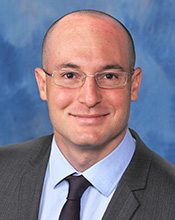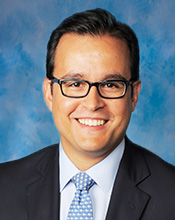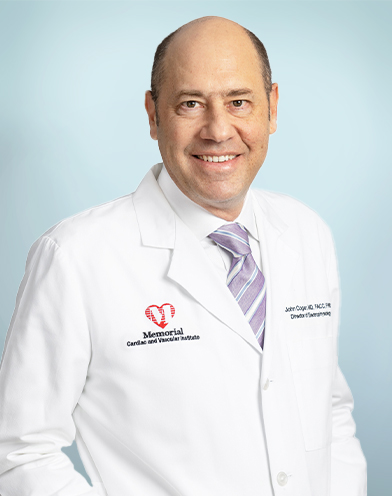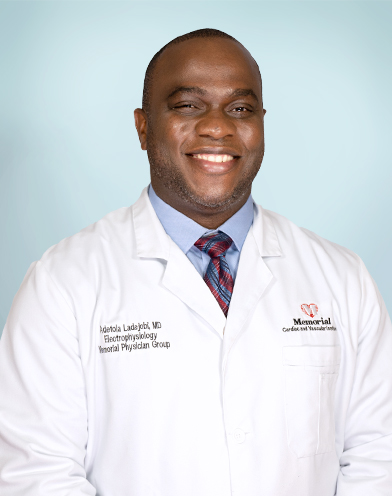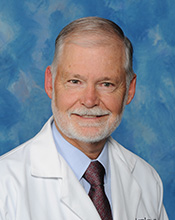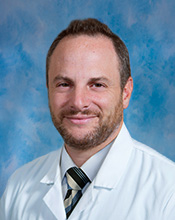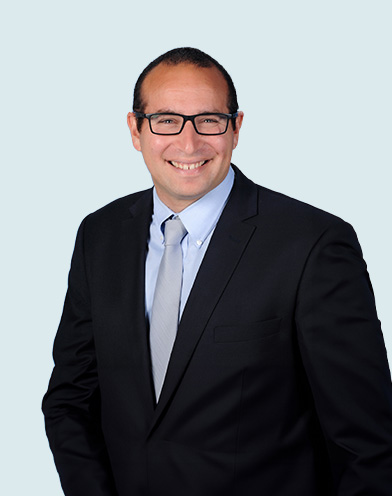Types of Adult Congenital Heart Disease (ACHD)
Our board-certified cardiologists treat all types of adult congenital heart disease, from simple to complex. Our team approach offers complete, personalized care
Call us for more information or to schedule an appointment
954-265-2243People living with heart defects from birth often have unique health challenges. That’s why it’s important to get ongoing, personalized heart care from a team that specializes in adult congenital heart disease (ACHD).
At Memorial Cardiac and Vascular Institute’s Adult Congenital Heart Disease Program in South Florida, our multispecialty team is highly skilled in treating all types of congenital heart disease, from simple to complex. You can count on us to be at your side with expert, lifelong care.
Types of Congenital Heart Defects We Treat
Our board-certified cardiologists and heart surgeons are specially trained and have decades of experience in providing personalized care to people with congenital heart disease. We have the skills, experience and technology to treat all types of congenital heart defects.
These types of defects cause incorrect or insufficient blood flow:
- Coarctation of the Aorta: A narrowing of a portion of the aorta.
- Interrupted Aortic Arch: When part of the aorta is missing.
- Patent Ductus Arteriosus: A fetal artery connecting the pulmonary artery and the aorta that doesn’t close after birth.
- Total/Partial Anomalous Pulmonary Venous Return (T/PAPVR): Some or all of the pulmonary veins do not connect to the left atrium as they should.
- Truncus Arteriosus: A single common blood vessel comes out of the heart, instead of the usual two vessels.
- Transposition of the Great Arteries: The heart’s two major arteries (aorta and pulmonary artery) connect to the opposite ventricle.
Heart valve defects can also cause incorrect of insufficient blood flow. They include:
- Bicuspid Aortic Valve: An aortic valve that has two flaps (cusps) instead of the normal three. These flaps can become narrowed, obstructed or cause leakage.
- Ebstein’s Anomaly: Tricuspid valve flaps are not formed correctly and are in the wrong position.
- Pulmonary Valve Stenosis: A defect that narrows or obstructs the pulmonary valve opening.
Watch Video: Holier Than Thou? ASD in Adults
ASD in Adults Also known as “holes in the heart,” septal heart defects impact blood flow. Examples include:
- Atrial Septal Defect (ASD): A hole between the heart’s upper chambers, or atria.
- Ventricular Septal Defects (VSD): A hole between the heart’s lower pumping chambers, or ventricles.
- Atrioventricular Canal Defect: Sometimes called atrioventricular septal defect, includes a hole between the heart's chambers and problems with valves controlling blood flow in the heart.
Defects Watch Video: Life After the Fontan/Single Ventricle
These defects affect one of the heart’s lower chambers, or ventricles. They include:
- Hypoplastic Left Heart Syndrome: Left side of the heart is underdeveloped.
- Pulmonary Atresia: when the pulmonary valve that controls blood flow from the heart to the lungs doesn't form.
- Tricuspid Atresia: when the tricuspid valve that controls blood flow from the heart’s right upper chamber to the right lower chamber doesn't form.
- Other single ventricle defects
Watch Videos: Management of Tetralogy of Fallot in Adults | Adults with Shone's Complex
Additional heart defects causing congenital heart disease include:
- Double Outlet Right Ventricle: Aorta and pulmonary artery connect to the right ventricle.
- Shone Complex: Heart has multiple narrowed areas in the left side of heart.
- Tetralogy of Fallot: Combination of four heart defects.
Some inherited conditions can cause congenital heart disease, including:
- Marfan Syndrome: Inherited condition that affects connective tissues.
- Noonan Syndrome: Prevents normal development of some parts of the heart, blood vessels and body.
- Turner Syndrome: Affects females in which one of the X chromosomes is missing or partially missing.
- Williams Syndrome: Genetic developmental disorder affecting several areas of the body.
- DiGeorge Syndrome (22q11): Small part of chromosome 22 is missing.
- Down Syndrome: A person has an extra chromosome.
Treating Adult Congenital Heart Disease
Our multispecialty team combines skill, experience, technology and a caring touch to treat people with adult congenital heart disease. Learn about our treatments for adult CHD.

ACHD Program at Memorial
Call us for more information or to schedule an appointment
954-265-2243
Patient- and Family-Centered Care
We treat patients and family members as partners in healthcare.

